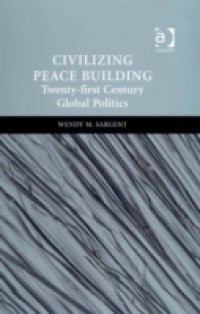Highlighting the high price paid by the United Nations and international peace builders that under-utilize the reflexive new paradigm approach to international relations (IR), this study develops an overview of IR theory, relied on by governmental and diplomatic communities as a guide to peace building. Especially significant is the development of IR theory in relation to religious extremism and tendencies towards barbarism with modernities. It discusses outcomes such as the exponential growth of international enmity between diverse populations and public demonization of the religious or ethnic other, expressed most recently through the War on Terror.Central to this research is the emerging debate on the impact of religious and cultural identity on IR and peace building. While many IR books continue to research positivist approaches, Sargent looks at the concept of structural violence as identified using post-positive approaches. This book rethinks peace building outside the limits of ideological difference.

